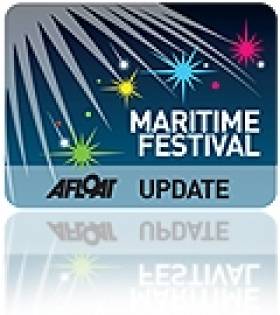Displaying items by tag: Flax
#maritimefestivals – The fascinating story of an ancient agricultural crop and how it played a key role in the maritime industry will be brought to life at Scotland's leading celebration of nautical heritage and culture.
A display and demonstration on flax – described as Britain's forgotten crop - will be one of the main attractions in the craft tent at the Aberdeen Asset Management Scottish Traditional Boat Festival later this month.
Crowds in excess of 16,000 are expected to descend on the village of Portsoy on the Aberdeenshire coast when the festival, now in its 20th year, takes place over the weekend of June 22 and 23.
The demonstration will be led by Flaxland, a group of flax growers and producers who featured in the BBC television show, Wartime Farm. They will be showing members of the public how the fibre was used in a huge variety of maritime products, and will reveal how they have even been able to build a boat made from flax fabric.
Flax growing in the UK is believed to date back to the Bronze Age and grew popular due to the versatility of both the plant's stem and seed. As well as being used in oil and in cooking, flax can be used to create everything from clothing to paint.
Roger Goodyear, chairman of the Aberdeen Asset Management Scottish Traditional Boat Festival, says organisers are delighted to welcome Flaxland to the event for the first time this year.
"The festival is one of many events taking place across the country for the Year of Natural Scotland, so it seems entirely fitting that this natural product with such a rich history in the UK should play a key role in this year's celebrations," he says.
"Authentic maritime and craft skills have always been an important part of the festival, and this year we will once again play host to a very diverse range of crafts men and women who represent the very best in traditional skills."
In addition to Flaxland, visitors will be able to learn splicing for beginners thanks to the maritime studies department of Orkney College, try a pottery wheel and watch a basket weaver in action. Younger visitors will also be able to take part in a workshop teaching basic knot-work, and the very popular Living Traditions tent will be making a return appearance.
The festival is a key event in the Year of Natural Scotland – a partnership between the Scottish Government, VisitScotland EventScotland and Scottish Natural Heritage which aims to showcase the country's unique natural environment.
For more information about the Aberdeen Asset Management Scottish Traditional Boat Festival and to buy tickets visit www.stbfportsoy.com Updates about this year's festival are also available on Facebook and Twitter – search for @STBFestival. An adult day ticket costs £8, children aged five to 18 and concessions are £5. Adult weekend tickets are priced at £12 and children and concessions at £8. There are also family tickets available which allow entry for two adults and three children for £25 for a day ticket and £35 for a weekend. Children under five go free and there is no charge for parking.





























































